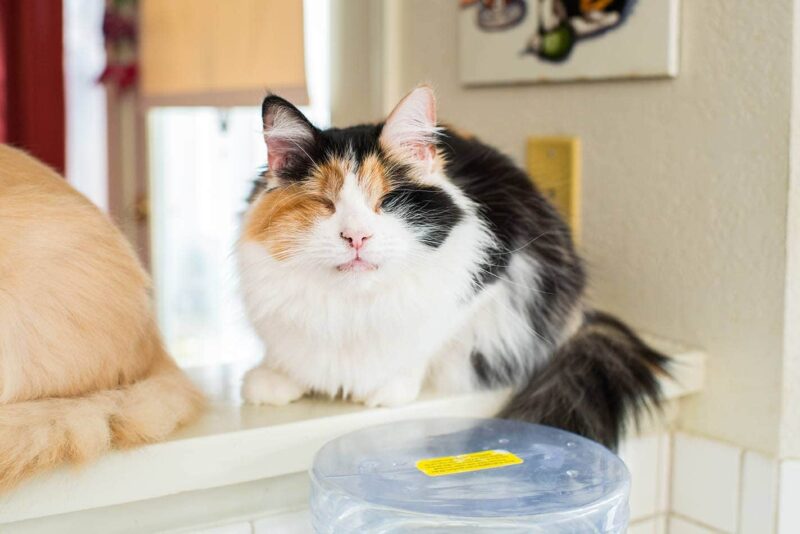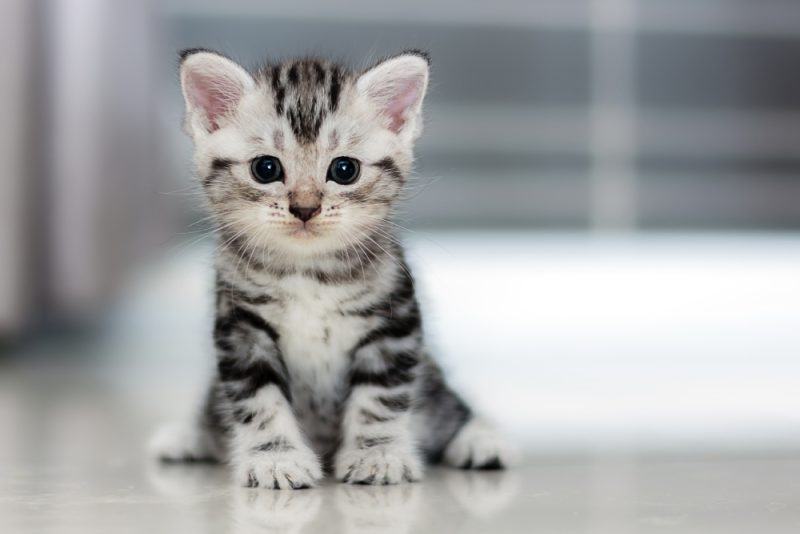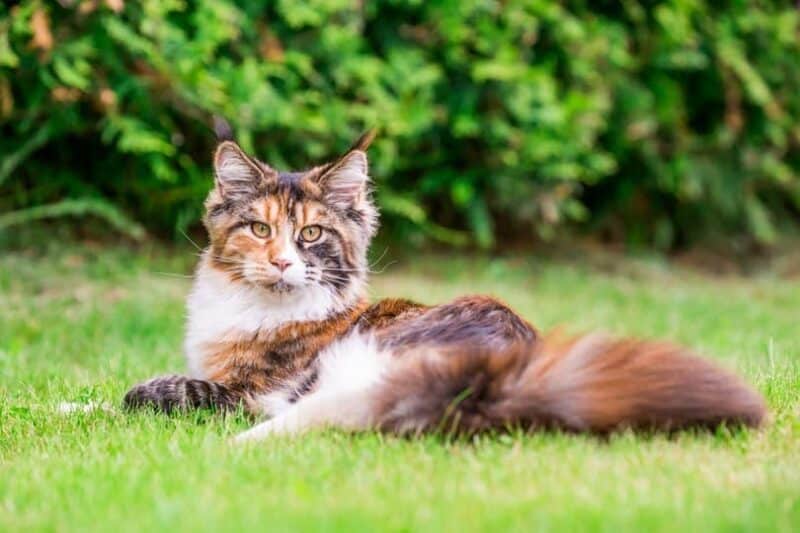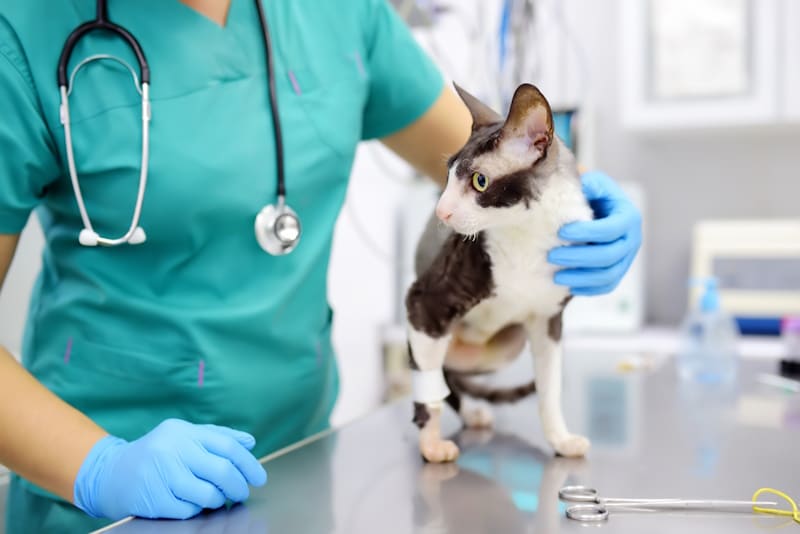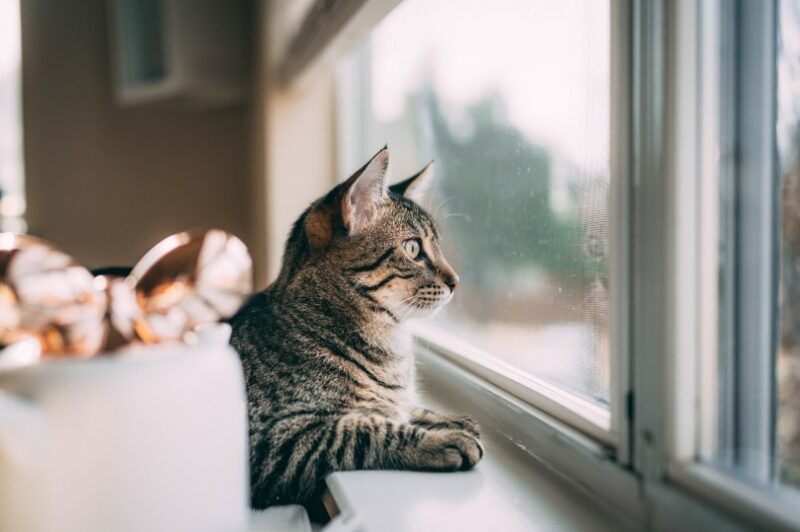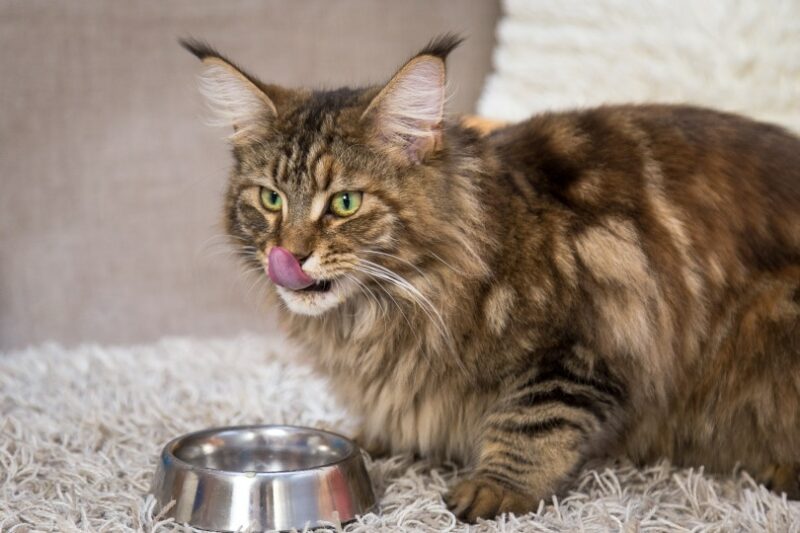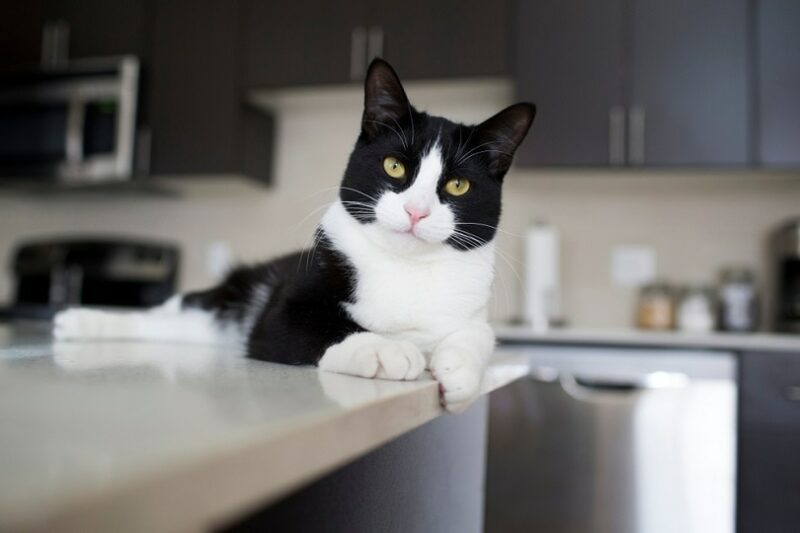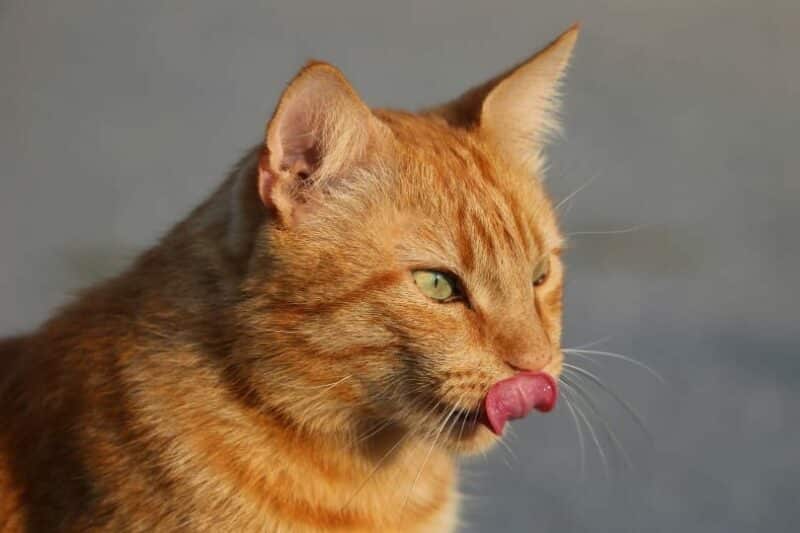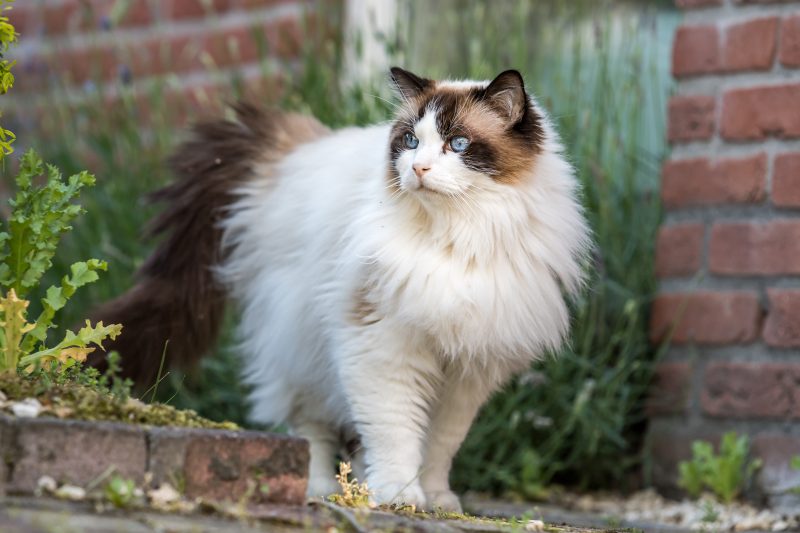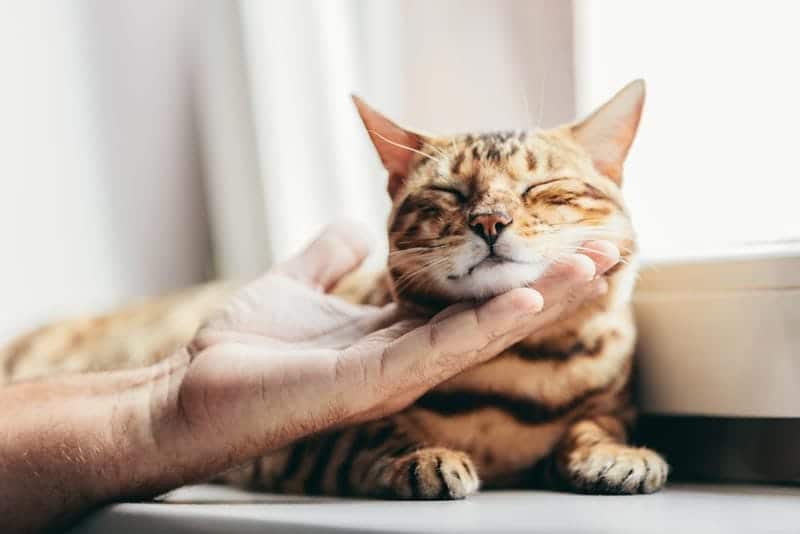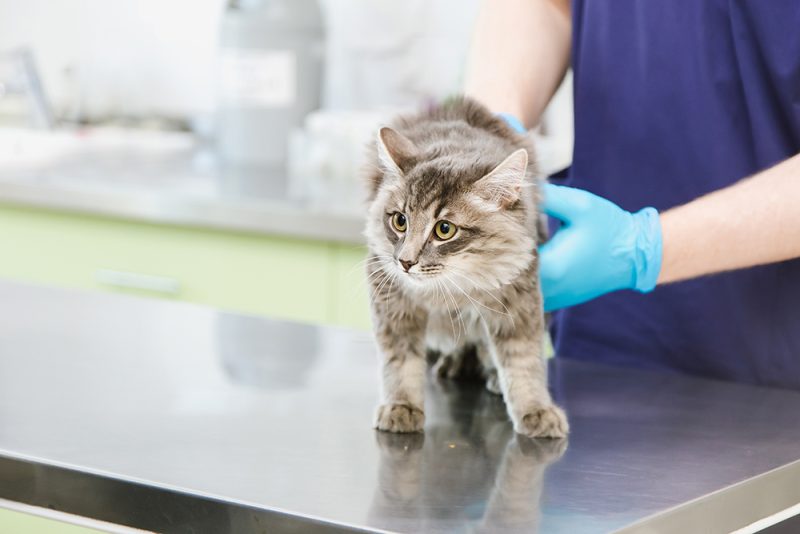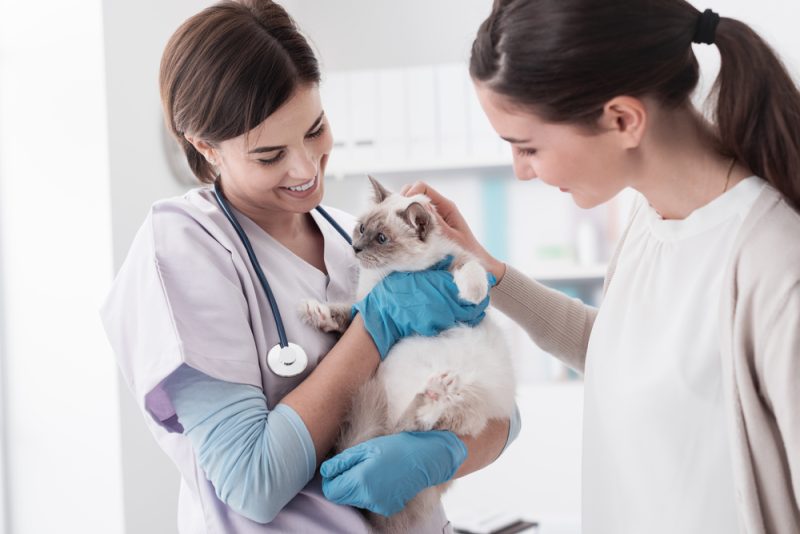Cats can lose their vision for many reasons. It can happen due to an injury or disease, and it can also happen as part of aging. Knowing the signs of blindness or the changes your cat may experience if they are losing vision will help you determine whether you need to contact a vet to have your cat checked.
How easily these changes are detected often depends on the speed of your cat’s vision loss. Sudden vision loss tends to make changes in your cat’s behavior more noticeable.
We’ll go through seven signs to watch for in your cat’s eyes or their behavior. If they’re exhibiting some or all of these signs or, for another reason, you suspect your cat may be losing their eyesight, contact a veterinarian for a full examination.

Signs Your Cat Is Blind
1. Cloudy Eyes
One of the easiest ways to spot that your cat might be losing their vision is when their eyes cloud over. You may see a hazy film over the corneas. This could mean that the cat has cataracts, which create an opaque barrier that can cause vision loss, but it could be caused by other vision issues.
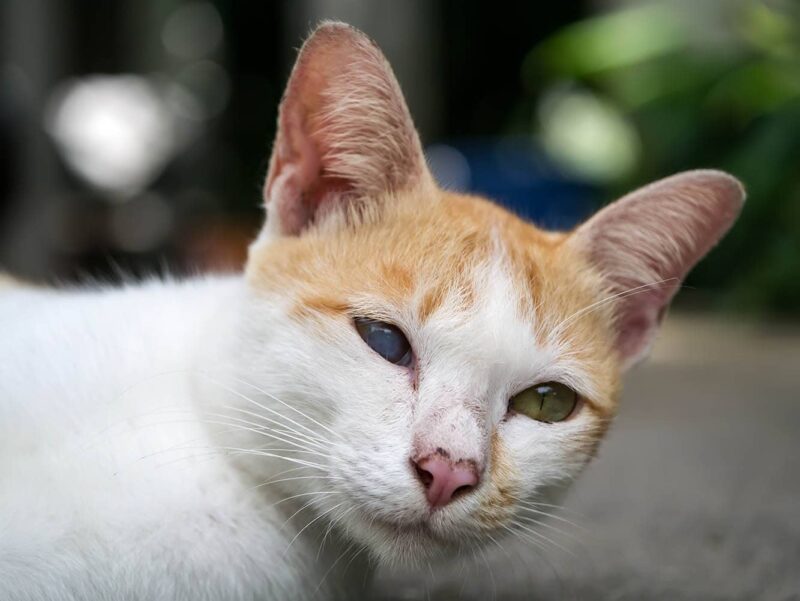
2. Other Changes in Eyes
While cloudy eyes are usually the most obvious way to spot a vision problem, you may want to check your cat’s eyes more closely if you suspect they’re going blind. You may notice that the pupils are different from each other in terms of shape or size or that they stay fully dilated regardless of the ambient light.
You may also see changes in the coloration of your cat’s eyes, both on the inside and on the surface. Look for an abnormal reflection or excessive redness, discharge, or squinting, and contact a veterinarian immediately if that occurs.
3. Disorientation and Bumping into Things
Cats are normally agile creatures, but now you’re noticing a decrease in your their graceful acrobatics, if your cat has poor vision, this could be the reason behind it. Your cat might start running into furniture or bumping into the wall.
They can also become disoriented or confused, especially when furniture or other items are moved from their regular location. Cats have an outstanding ability to adapt and remember the usual layout of their familiar environment, only becoming disoriented when it changes.
You may notice your cat wandering aimlessly or looking unsure as they navigate the house with less confidence.
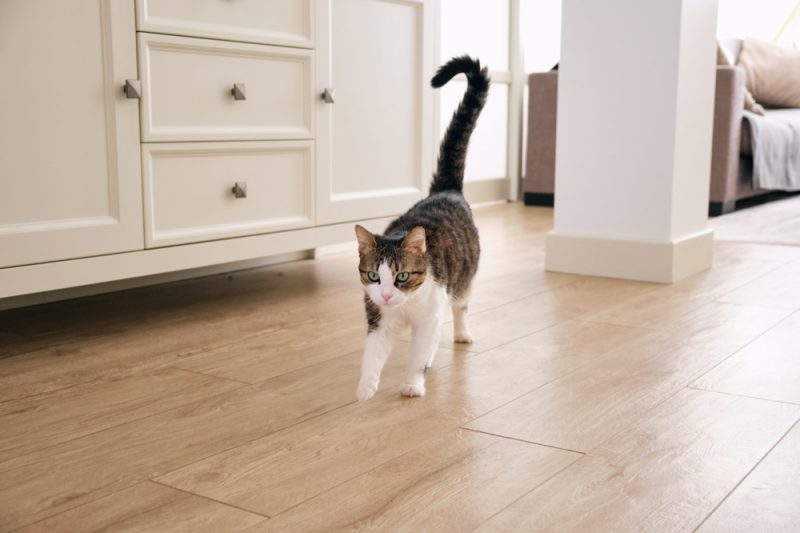
4. Walking Slowly or Cautiously
You might also find that your cat is much more careful in their movements after spending time running into things. They might walk very slowly or with their legs wide as if to brace themselves. You may notice them crouching closer to the ground or even using their nose and whiskers to explore.
5. Reluctance to Jump
Along with an interruption in their normal walking behavior, your cat may appear hesitant to jump down from a height into their favorite napping spots or may even avoid it altogether. Most felines prefer a higher vantage point, and if your pet recently acts differently when jumping up or down, they may be afraid to make these moves due to vision problems.
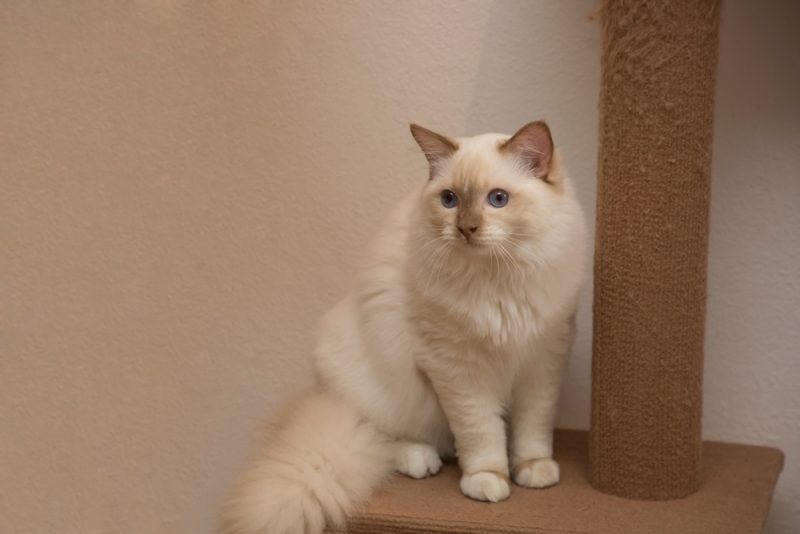
6. Changes in your Cat’s Communication
Your cat may start to vocalize more as they lose their sight. It could be a sign of confusion or distress, or they may cry out when they can’t find you. If your cat isn’t typically talkative, a sudden increase in meowing or yowling may indicate that something has changed.
You may notice that your cat communicates with you differently, and this should always warrant a vet visit.
7. Behavior Changes
Beyond this list of specific signs, you may notice other changes in your cat’s behavior. For instance, the animal might startle more easily or become less social. They may have accidents outside the litter box or follow you and rub up against your legs less frequently.
If your cat starts acting strangely, contact a vet for a complete examination and vision test.
If you need to speak with a vet but can't get to one, head over to PangoVet. It's an online service where you can talk to a vet online and get the advice you need for your pet — all at an affordable price!


Causes of Vision Loss in Cats
It’s natural for a cat to lose a certain degree of vision as they get older, although you should always consult with a veterinarian to see if this indicates a treatable disease. Here are a few reasons a feline can lose their sight.
- Cataracts: Cataracts cloud the eye lens and can occur in one or both eyes. Old age is a frequent cause of cataracts, but they can occur in younger cats due to inflammation, infections, injuries, or diabetes, among others.
- Glaucoma: Glaucoma is a disease that causes high pressure in the eye, which can affect the retina and the optic nerve, leading to bulging of the eye and eventual blindness.
- Tumors: Depending on the location of the tumor, it can press on the optic nerve or affect the retina and cause blindness.
- Injury: Trauma to the eyes or the head, such as from a scratch, a bite wound, or a traffic accident, can cause vision loss in some cases.
- Retinal detachment: This occurs when this layer at the back of the eye (the retina) comes loose and detaches, which can occur in cats with high blood pressure secondary to conditions such as kidney disease and hyperthyroidism or for unknown reasons.
- Uveitis: Various types of infection, tumors, or trauma can cause uveitis, which means inflammation of the uvea, the internal vascular layer of the eye. These infectious agents include feline leukemia and immunodeficiency virus, fungus, toxoplasma, Bartonella, and feline infectious peritonitis disease.
This is not an exhaustive list of possible causes of blindness in cats, but it can be a good starting point to understand what might be behind your kitty’s vision loss.

How to Tell If a Kitten is Blind
Kittens experiencing blindness or vision loss will exhibit similar signs as adult cats that lose sight later in life. Additionally, you may find that your kitten is particularly clingy with you if they’re blind. This is because you provide a sense of safety in an uncertain landscape.
You can test your kitten’s eyesight using a menace response test. A cat with full vision will blink or back away if you wave your hand towards their face. If your kitten doesn’t react, it may be because they can’t see your finger. It’s important to know that this test will only work in kittens 10–12 weeks or older since younger kittens have not learned this response yet.
Thanks to the treatments available for blindness and the accommodations you can make to keep your kitten comfortable, there’s no reason they can’t grow into a healthy and happy cat.
Treatments for Vision Loss
The treatment for your cat’s vision loss will depend heavily on the cause. Many infections and diseases can be treated with medications. Other conditions, such as cataracts, can be corrected with surgery. It’s important to get your feline checked by your vet and discuss your pet’s signs with them so that they can accurately diagnose the reason for your cat’s vision loss and develop an appropriate treatment plan.
In some instances, blindness in cats may not be reversible. The earlier you catch it, the more likely your vet can provide successful treatment.
Caring for Your Blind Cat
If your cat is blind and it’s not treatable, you’ll need to modify your home environment to improve your cat’s comfort and ability to navigate the house successfully.
- Keep it consistent: Try not to move things around in your home, especially furniture that could get in your cat’s way. It’s crucial to make sure they know where the food bowls and litter boxes are.
- Clean up: Keeping your home clean and the floors free of clutter will help your cat feel more confident and less wary of moving around.
- Supervise your cat outdoors:If your cat enjoys time outside, you can build them a catio to keep them safe.
- Microchip your cat and invest in an ID: A microchip and a collar with an ID tag can help you locate your kitty if they get confused and wander off.
- Don’t startle your cat: Try not to spook your cat if you can help it, and announce yourself when you enter a room.
Making the appropriate accommodations for your blind or impaired cat can ensure their comfort and happiness over the long term.

Conclusion
Whether your cat has recently lost their eyesight or has been blind since birth, it can still enjoy a long, happy, healthy life. Determining the cause of your cat’s blindness or vision problems will dictate the treatment, and once you know how to provide what it needs, you will be able to care for your pet and fully enjoy their companionship.
Featured Image By: Casey Elise Christopher, Shutterstock
